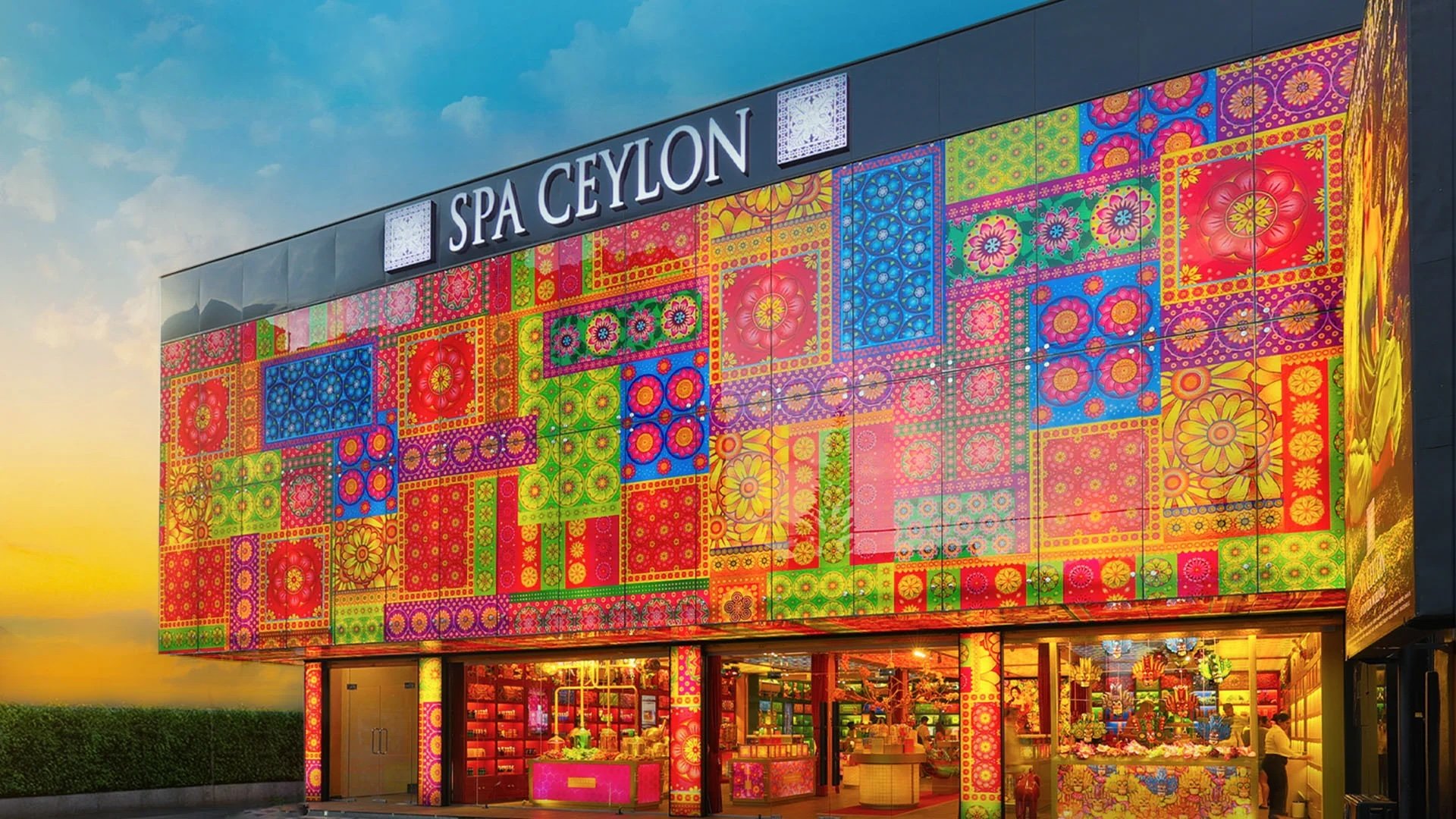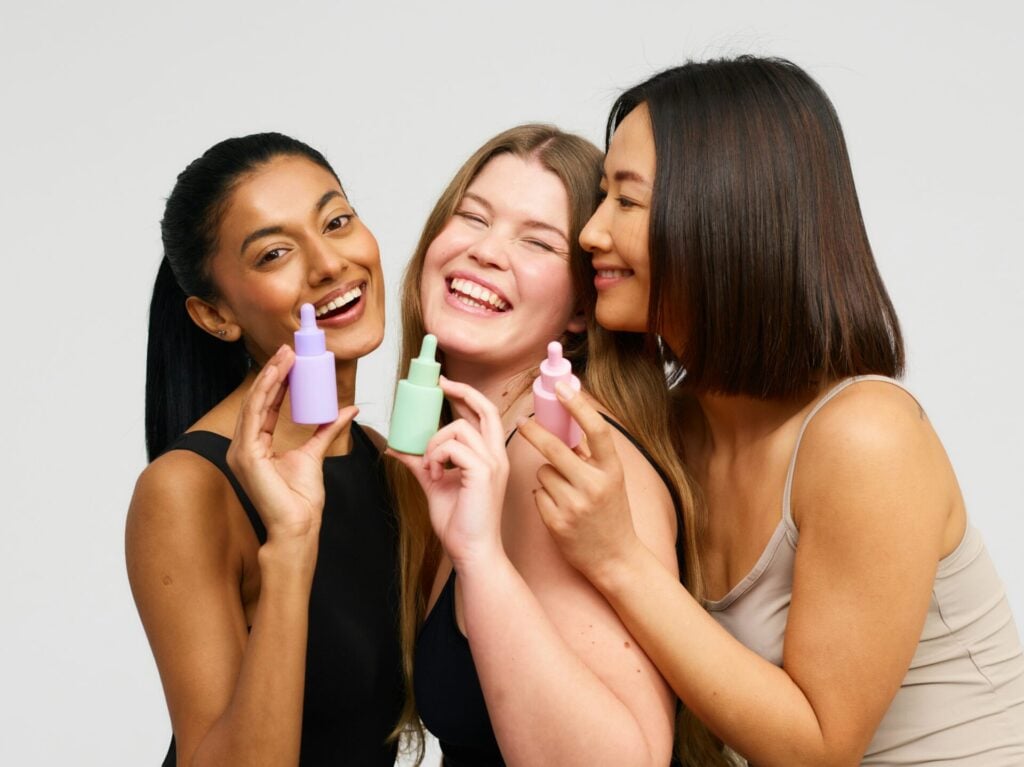Founded in 2009, Spa Ceylon has grown from its Sri Lankan roots into a global wellness empire with more than 140 locations across 30 countries. What sets the brand apart though is not just its beautiful Ayurvedic products, but also its commitment to planet earth.
Co-founder Shalin Balasuriya sat down with The Ethicalist on a trip to the UAE, to talk about the family inspiration behind Spa Ceylon, the challenges of keeping such rapid growth sustainable, and the brand’s surprising conservation projects.
TE: You grew up surrounded by beauty and wellness. How did that background influence Spa Ceylon’s beginnings?
Shalin: My brother and I, who are the co-founders of Spa Ceylon, grew up in a home where our mum created Sri Lanka’s first homegrown cosmetic brand many years ago, right in our pantry. We saw it all come to life. After finishing our education, we ended up working with her company and helped to scale it. That’s when we started really diving into the business and noticing national trends. In the early 2000s, the world was looking to go green and we discovered Ayurveda, this amazing 5,000-year-old holistic science that uses natural ingredients to bring people back to balance. We realised it was a powerful thing to share with the world. That’s how Spa Ceylon was created, and it has evolved over the last 16 years into what it is now.
TE: You have 140 stores in over 30 countries. How do you manage that growth while keeping the brand in touch with the planet?
Shalin: The fact that we’re based on Ayurveda answers that, because it’s all about balance – it’s woven into the way we do business, woven into the way we cultivate, woven into the way we formulate, everything. When we work with farmers, we make sure everything is sustainably harvested. We partner with NGOs and universities to give them education so that happens because ultimately, what you take from the ground, you return to the ground. We also employ communities where possible and are heavily involved in conservation—elephants, butterflies, fruiting plants, flowers, even coral conservation. Balance is what will keep us going and protect human life, plant life, and the world we live in.
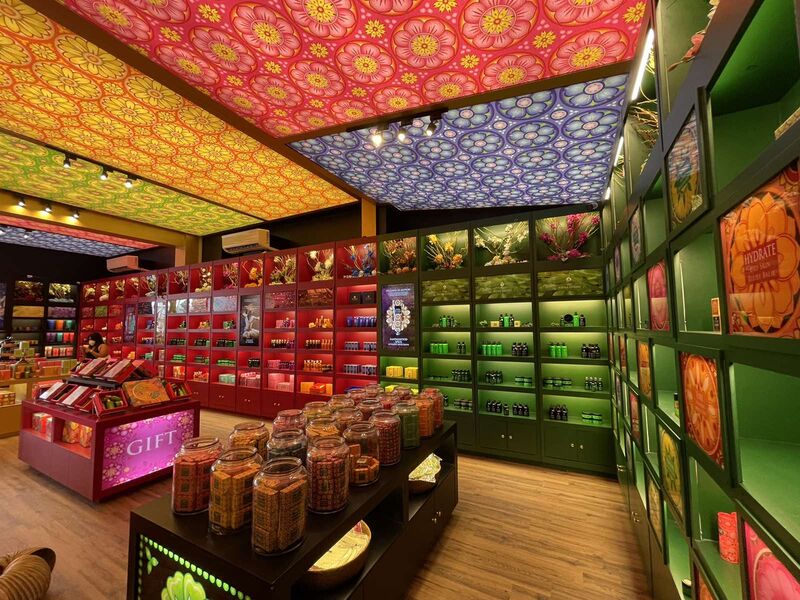
TE: You mentioned conservation. Could you tell us more about those projects?
Shalin: Sri Lanka has the highest density of Asian elephants in the world, but sadly we lose many each year due to human-elephant conflict. Already this year we’ve lost more than 245 elephants. We’re working with groups like the Wildlife and Nature Protection Society on solutions like ripple light systems that deter elephants from villages, and the Elephant Orange Project, where citrus is grown around villages to keep elephants away. We also run scholarships for children whose parents have died in elephant conflicts. It’s about education and changing mindsets too, because historically humans and elephants coexisted much more peacefully.
‘Sri Lanka had lost around 20 butterfly species, and our project has brought back 13 of them. We rear and reintroduce them, and help biodiversity thrive. We plant fruiting plants in jungles to restore food sources for animals, and we’re working on coral reef restoration’
We also have a butterfly project. Butterflies are key pollinators, vital for biodiversity. Sri Lanka had lost around 20 species, and our project has brought back 13 of those species. We rear them, reintroduce them, and help biodiversity thrive. We plant fruiting plants in jungles to restore food sources for animals, and we’re working on coral reef restoration. Coral reefs are the forests of the ocean, crucial for marine life, but climate change and harmful fishing practices have devastated them. We plant coral to allow reefs to regrow and ecosystems to recover.
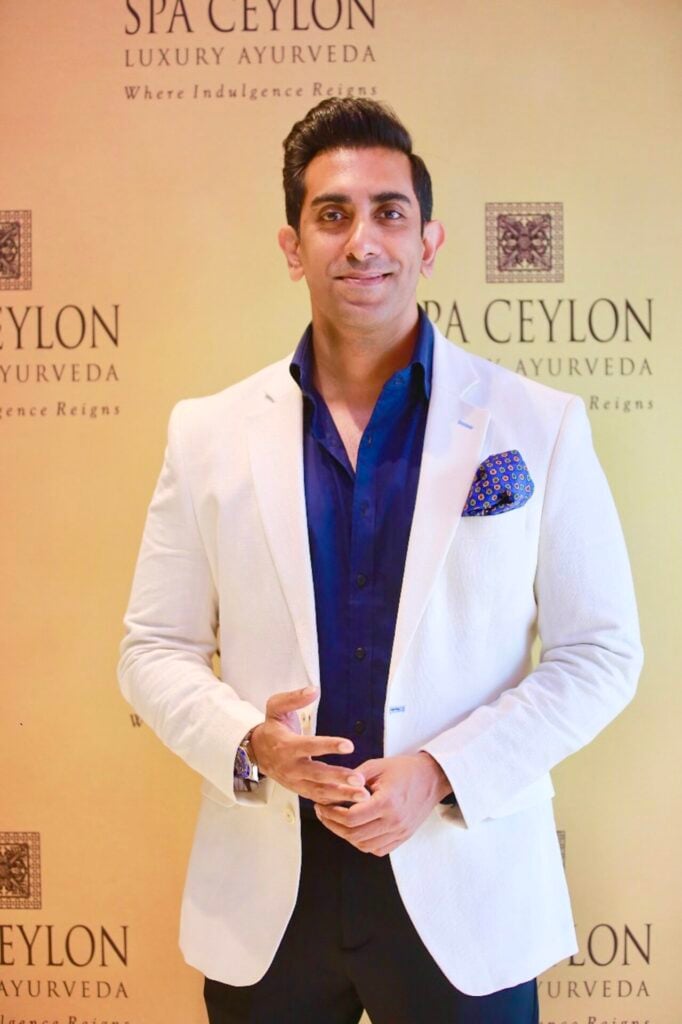
TE: How do you ensure sustainability in your products and packaging?
Shalin: In the last three years, around 60 per cent of our packaging has shifted to glass. For PET packaging, we collect bottles back in-store through recycling initiatives, and customers get discounts for returning them. The plastic is recycled, made into pellets, and repurposed. Our stores act as mini recycling centers. At our factory, we treat all wastewater, we run entirely on solar power, and are working toward carbon neutrality. Sustainability is embedded in every stage of our process.
‘At our factory, we treat all wastewater, we run entirely on solar power, and are working toward carbon neutrality. Sustainability is embedded in every stage of our process’
TE: Spa Ceylon is expanding globally but still rooted in Sri Lanka. Why keep production at home?
Shalin: Everything is sourced and manufactured in Sri Lanka, except for a few oils like orange or lavender that don’t grow well there. Keeping production in Sri Lanka allows us to maintain control, support local employment, and stay connected to the roots of Ayurveda. Sri Lanka is small enough to incubate innovation but large enough to scale it. Manufacturing there keeps us authentic.
TE: The beauty industry often partners with hotels. Do you work with hospitality brands?
Shalin: Yes, we supply to hotels worldwide. In Sri Lanka, we work with chains like Shangri-La. Pre-COVID, we were shifting to wall-mounted amenities to reduce waste, but the pandemic forced many hotels back to small bottles for safety. Now, we’re moving back again. We also supply many boutique hotels, often with glass bottles. Our aim is always to make it as sustainable as possible.
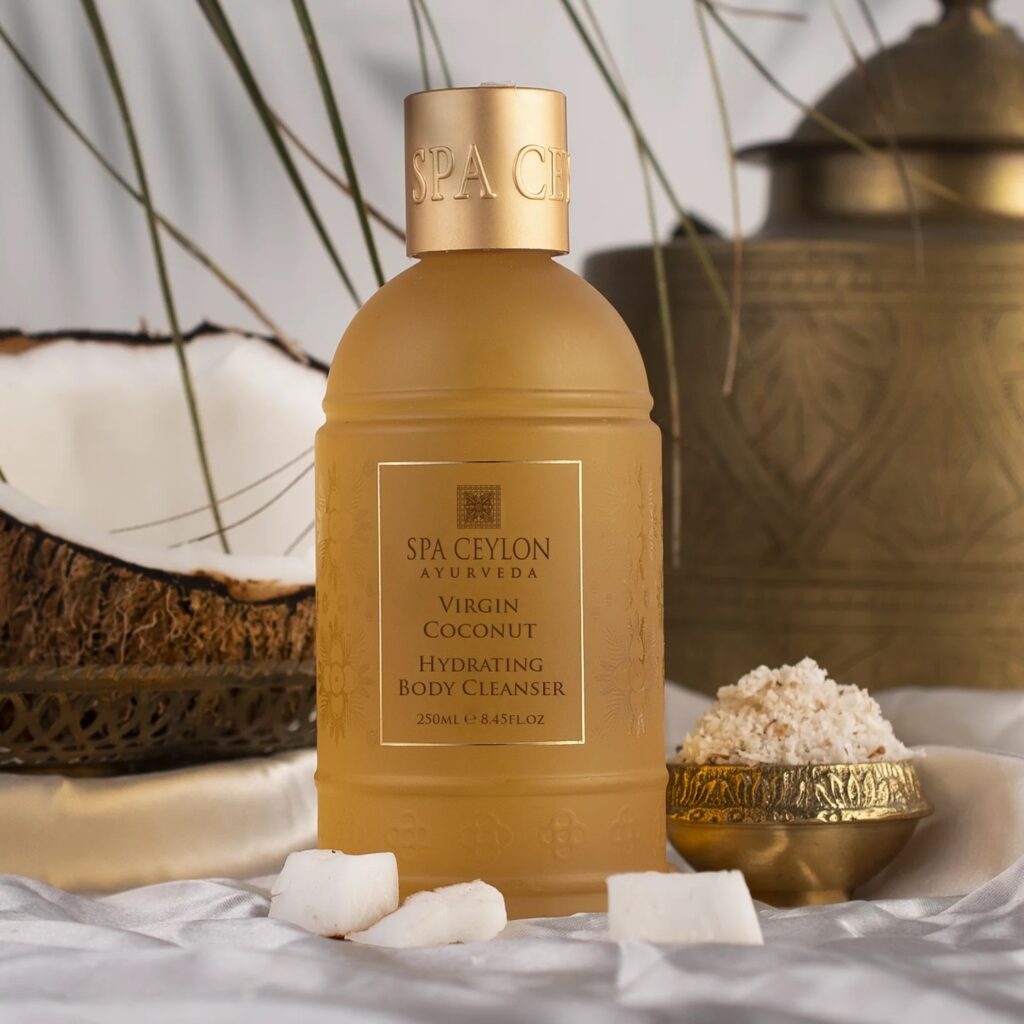
TE: You’re about to launch in the UAE. Why now, and how will you approach the market?
Shalin: Pre-COVID, we never entered a market without physical stores because they’re very experiential. Our stores are large, bespoke spaces filled with fragrance, art, and design. But in Dubai, getting prime retail space has been tough. Since the pandemic, we’ve successfully launched digitally in new markets, so we’ll start with online stores and third-party vendors here. Eventually, once we secure space, we’ll build physical stores.
‘Forests emit phytoncides, natural compounds that boost immunity and reduce stress. We found a way to mimic that and created a range that brings the sensation of being in a forest into your daily routine’
TE: What are your most popular products globally?
Shalin: Across every market, our Sleep and De-Stress ranges are top sellers. People everywhere struggle with stress and sleep. These formulations interact with the body beyond just aroma—they help induce calm or deep restful sleep. Recently, we also launched our Forest Bathing range, inspired by the Japanese practice. Forests emit phytoncides, natural compounds that boost immunity and reduce stress. We found a way to mimic that and created a range that brings the sensation of being in a forest into your daily routine. Similarly, we’ve developed an Ocean-inspired range that recreates the calming effect of sea spray and coastal air.
TE: Finally, how do you balance scale with authenticity?
Shalin: Staying rooted in Sri Lanka has been key. It allows us to innovate authentically while giving back to our communities and ecosystems. Ayurveda teaches that everything we need is already in nature, it’s just about maintaining balance. That philosophy guides us as we grow globally, ensuring that Spa Ceylon remains not just a beauty brand, but a force for wellness and sustainability.

